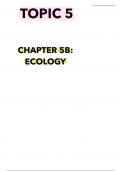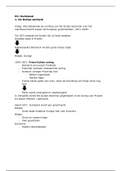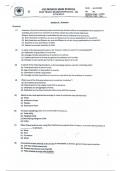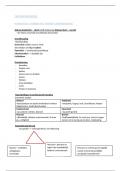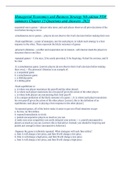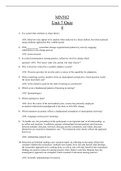Summary
Summary Unit 4 notes biology IAL edexcel, Ecology
- Course
- Institution
- Book
- Biology notes that will help international a level students prepare for their unit 4 exam. - Consist of Chapter 5B: Ecology. - 90% types notes with the other 10% being hand written usually in tables. - Useful tools to help learn and memorise them like emojis, diagrams, tables and shortcuts.
[Show more]
